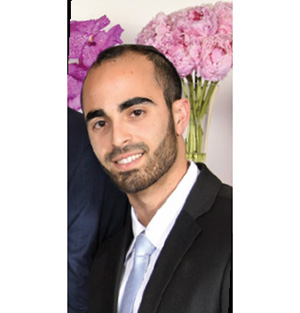
As Avraham begins his journey through his ten nisyonot (challenges and trials), it leads us to think about the nisyonot that each of us go through. Many times we wonder why we must undergo so many challenges, from big to small. What does Hshem want from us already? It’s common to associate cognitive negativity toward the challenges we have: “Why do I have to go through this?”; “This is so annoying”; “This is absolutely horrible.” Without a doubt, we must have empathy for those going through struggles, and most certainly we can never judge, but each of us on some level can perhaps come to entertain a different perspective on the difficulties Hashem wants us to experience.
There are basically two ways to approach the turbulence that occurs in our lives: With a demeaning and dismissing attitude, or with a hopeful and optimistic one. What does that really mean, though? How can one be positive about the challenges that come his way?
The Ramban posits that nisyonot are for the purpose of building one’s character. In other words, one can be great, but still be greater. What a nisayon does is that it transforms a could be into a reality. Essentially, a nisayon brings one out of his comfort zone so that he can utilize his deeper potential.
We learn from the Ramban that being in an opposing situation is actually a tremendous opportunity and is meant for one’s growth. The more one begins to appreciate character growth, the more one will respond to difficult circumstances with optimism. The times of nisyonot can certainly be bitter, but they are also moments that can be sweetened by focusing on the understanding that it’s a time where we can perhaps grow in faith in Hashem, patience, confidence, positivity, spiritual cleansing, etc. When one becomes a growth-lover, every challenge will be looked at with eyes of “how can I grow in some way from this?” Instead of focusing on the challenge, one focuses on what one can gain from it, and thus can on some level bypass being consumed by the difficulty inherent in the challenge. David Hamelech desired growth and being great so much that he even requested to be tested by Hashem. Now although we learn from that incident that we are not to ask to be tested (indeed, the many daily tests are more than enough for us), we see from here the extreme level of one wanting more weight under the bar so-to-speak in order to reach a higher caliber of greatness.
Utilizing this perspective of being positive rather than dismissing in challenging situations can be seen from this story brought in the Jewish Observer: “During his visit to the United States in 1939 on behalf of his yeshiva, Rav Elchanan Wasserman was asked for his impressions of America. Those who posed the question anticipated a zealous condemnation of a Godless society. He surprised them, saying, ‘American youth has the greatest potential of any I have met. They are sincere in their search for truth, and once they are taught the Torah view, they develop into the finest b’nei Torah.’” In this situation as well there were these two perspectives: Seeing the positive or seeing the negative. Rav Elchanan wasn’t ignorant of the many spiritual challenges in America at that time, and had he mentioned them he would have indeed been correct. But instead he focused on what could be gained in that time and place, and demonstrated a growth-minded outlook to those who were thinking otherwise. Developing this attitude is a strength that can reap benefits, and can be a skill well-worth attempting to work on.
Shabbat shalom u’mevorach.
Binyamin Benji is a graduate of Yeshivas Rabbeinu Yitzchak Elchanan, and Wurzweiler School of Social Work. He currently learns in Lakewood and is the author of the Sephardic Congregation of Paramus’ weekly Torah Talk. He can be reached at [email protected].








